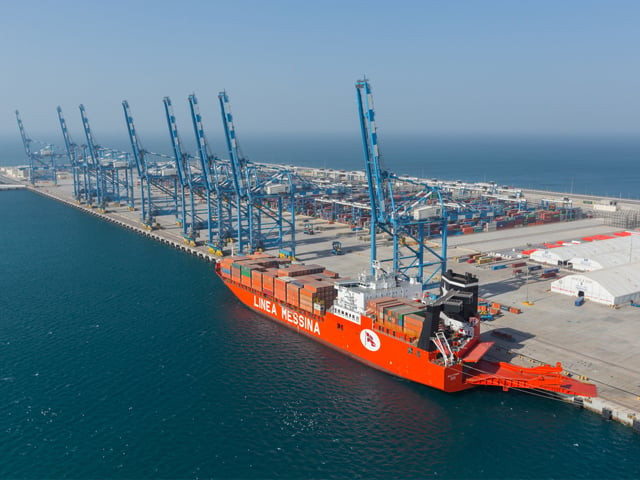Gwadar Port operations face hurdles
Insurance firms reluctant; port has high costs, lacks road and rail infrastructure

The government is facing a host of challenges in the way of operationalising Gwadar Port despite offering a lucrative deal to the Chinese port operator.
In a report submitted to the prime minister, several challenges have been identified like the reluctance of international insurance companies due to security challenges, higher port costs and the lack of road and rail infrastructure.
Despite its geostrategic advantage, the port had not been able to secure a significant share in the global merchant shipping traffic, it said.
Operational costs are high, making the port less competitive than regional ports like Jebel Ali and the local economy does not generate sufficient cargo volumes.
There have been high insurance costs that discourage international shipping lines. Absence of stable cargo flows and agreements with major shipping lines hampers economic activity.
Dedicated feeder ships (up to 1,500 twenty feet equivalent units – TEUs) are needed to facilitate transshipment between Gwadar and Persian Gulf ports. Also, currency exchange losses restrict investor interest in export businesses.
The report revealed that certain finished products were restricted from export under the 2022 Export Policy Order. China's Xinjiang province relies more on road and rail than ports, depriving Gwadar of potential benefits.
According to the report, industrial relocation to Gwadar Free Zone remains limited due to multiple factors and high production costs while harsh environmental conditions discourage foreign investment. Restrictions on movement of foreign workers, including Chinese personnel, impact operations.
There are inefficient border terminals at Khunjerab, Torkham and Chaman, creating bottlenecks to transit trade. Security concerns, weak infrastructure connectivity and the lack of infrastructure limit economic growth. The potential for large-scale aquaculture development remains untapped due to the dearth of advanced facilities.
Outlining the opportunities for Gwadar Port, the report revealed a proposed salt project at Khor Kalmat and potential joint ventures for aquaculture with international partners.
There is also the possibility of setting up an automobile park and a bulk storage facility at terminals as well as engagements with Chinese fishing trawler companies to establish a fish processing industry in Gwadar Free Zone.
In addition to these, the utilisation of Gwadar Port as a logistics hub for Central Asian Republics can leverage the North-South transport corridor.
The government has approved several short, medium and long-term measures, which include the organisation of an international conference in Islamabad to promote Gwadar and the development of a comprehensive marketing strategy.
It called for accelerating diplomatic outreach to attract economic and commercial interests from Central Asian states and engaging with chambers of commerce and Afghan transit traders to enhance regional trade.
The government approved the initiation of feasibility studies for roll-on/roll-off vehicle transshipment and the completion of critical infrastructure projects such as M-8, ML-4 and the Eastbay Expressway.
It agreed on measures to encourage Chinese companies to utilise Gwadar for transshipment and establish ship repair facilities.
It decided to promote technology adoption including artificial intelligence, Big Data and radio frequency identification (RFID) for cargo handling, and designate Gwadar as a dedicated mining port for Balochistan.
The government gave the go-ahead for creating an exclusive residential area for foreign workers, implementing Gwadar Master Plan and establishing a shipyard.
The minister for planning, development and special initiatives briefed the cabinet in a recent meeting on the proposed plan to operationalise Gwadar Port, including imports and exports, road connectivity and airports.
The briefing covered various aspects including the significance of Gwadar Port, infrastructure development, hinterland connectivity, concessions and incentives, challenges in operationalisation and opportunities for Gwadar as a logistics hub for Central Asian Republics.


















COMMENTS
Comments are moderated and generally will be posted if they are on-topic and not abusive.
For more information, please see our Comments FAQ